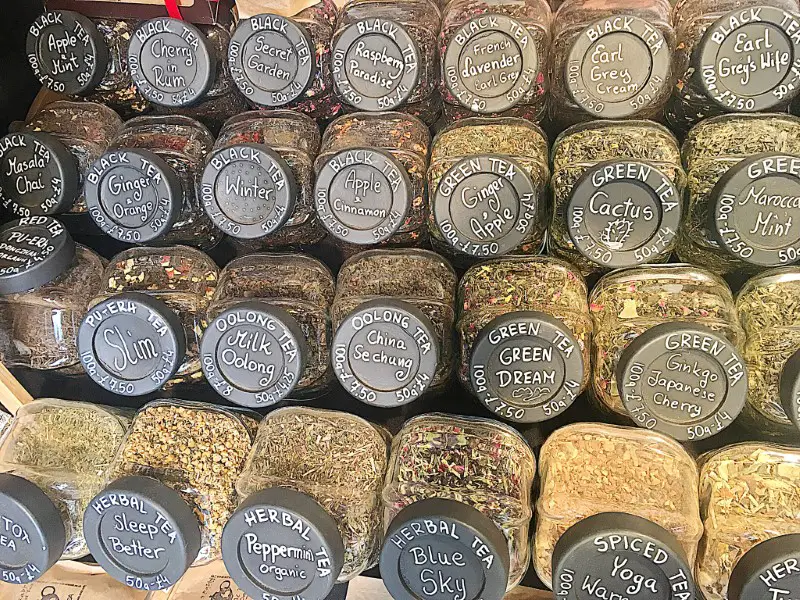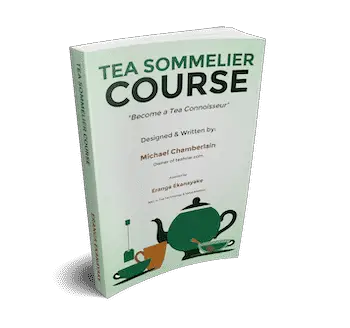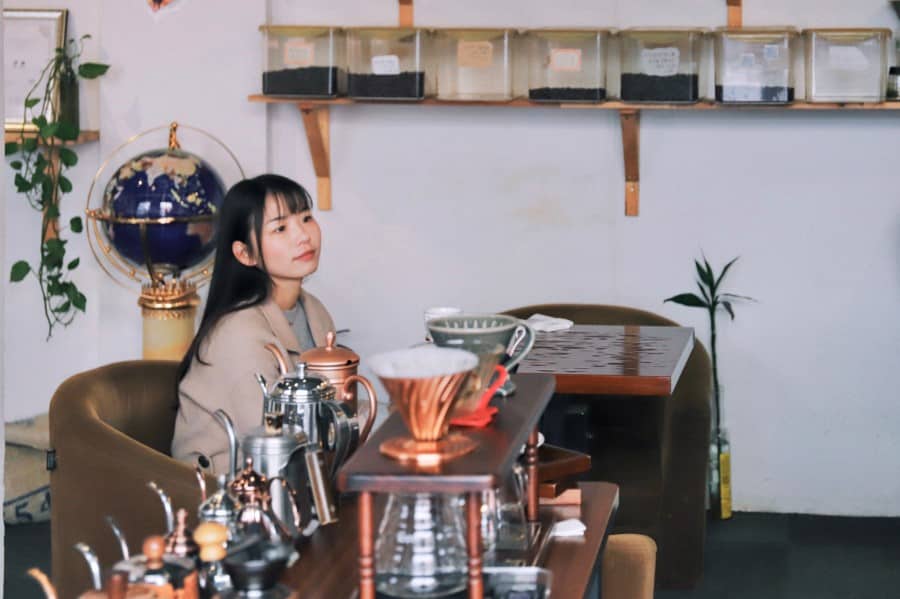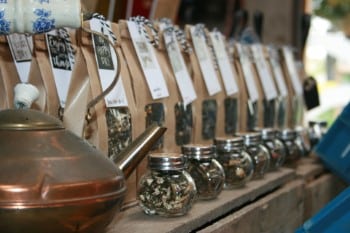I’ve heard plenty of times the term tea specialist mentioned, as well as tea sommelier, tea master, tea connoisseur, and others. Certainly in restaurants that had specific beverages such as tea, and indeed similar in places selling coffee, wine, and fruit juices. So who is a tea specialist when compared to say a Barrista, and what is he or she actually called – based on their position, qualifications, or experience?
So, what is a Tea Specialist called? A Tea Specialist is a Tea Sommelier. Usually certified by a renowned tea academy in order to officially be a Tea Sommelier. It requires in-depth understanding and knowledge, gained through appropriate course modules and grades. A casual Tea Sommelier is usually referred to as a Tea Connoisseur.
There is more to a Tea Sommelier than just knowing a fact or two about tea. It’s certainly more complex than that, which actually makes it a much more respectable and reliable profession. This is why you need to follow certain steps in order to become a Tea Sommelier, much like a chef would need to with a specialty food.
So let’s dive into who a Tea Sommelier is, how you can become one, and the types of jobs they can do. And by the
Tea Sommelier in Brief
A Tea Sommelier is a specialist in the knowledge of tea. He or she knows the different types of tea which are available, how they can be made to different tastes, and the kind of effect each type has on the mind and body.
A Tea Sommelier is for tea, what a Wine Sommelier is for wine. They know the ins and outs of the beverage that they’re handling – on a daily basis. The term Tea Sommelier is mainly used if you are working in such a position at a restaurant, tea wholesaler, tea producer, or hotel, and have acquired the necessary qualifications and experience.
When you are an expert in teas, you can more easily recommend the best kind to anyone you know. Some people may not like the term ‘Sommelier’, as it’s also used for the same task performed with wine and they think the term may degrade its specialty.
So, are you interested in becoming a Tea Sommelier? Or do you just want to know what it takes to become a tea connoisseur?
Becoming Certified as a Tea Sommelier
A Tea Sommelier is not just anyone who knows about tea or who can brew tea. It goes much further than that and you need to be certified as a Tea Sommelier through a recognized tea academy.
When you become a certified Tea Sommelier, you are a trained professional in tea and you gain the necessary expertise in this field.
So what can you do if you want to become certified as a Tea Sommelier?
First and foremost, you really need to have a passion for tea. Having a deeper interest in the subject will make it far easier to learn about it, there are far more aspects to it than you think and you’re more likely to remember all the nuances of each type on a semantic level if you are deeply involved in the subject.
If this is the case, then secondly, you need to do some serious research of your own on tea in general, so you can get a good basic understanding of the wider subject of teas and tisanes, beyond just your favorite brews.
Start with my foundational tea sommelier course, which takes you through all aspects of a tea sommelier, to become a tea connoisseur, or to go further to become a tea sommelier. which includes a step by step guide in tea tasting and gives you a greater understanding of the role of a tea sommelier or creating outstanding tea tastings for you, your friends, and family.
Then, you need to dive into some more research on the types of tea schools available in your area.
My course is a great precursor to moving forward with professional qualifications.
It’s important that you find a well-reputed academy or institute providing professional and recognized services and routes to qualification. At the end of the day, your course and certification should be recognized wherever you plan to go next.
Tea Academies
I came across the following tea academies and programs to go on to after my course, these have made a mark in this field of study. They are;
- ITEI – International Tea Education Institute in Canada
- TAC – Tea Sommelier Program in Canada
- Certified Tea Sommelier Program – provided by the World Tea Academy
There are also many other institutes where this program can be followed, such as Niagara College, Vancouver Community College, Seneca College and Mohawk College in Hamilton.
The great thing about a tea course is that it can be followed and completed online as well. This has gained much popularity due to the convenience it gives you by allowing you to become a certified Tea Sommelier right from the comfort of your home.
Because my course is a lead into further qualifications, it has a “test your knowledge” area. But final exams of a Tea Sommelier Certification takes about two hours to complete and has both theory and practical sections, in which you are supposed to brew different types of tea and identify what each type is.
This in itself is a major topic area as there are so many different kinds of tea coming from different parts of the world.
There are four main types of tea which are white tea, green tea, black tea, and oolong tea. Along with additional types of Yellow Tea and Pu’er.
These types can then be further broken down, based on where the plant is grown. This could be China, Japan, India, Sri Lanka, etc. Or any of the other 62 Top Tea Growing Nations.

Tea Sommelier Course
The full curriculum of a Tea Sommelier Program differs according to where you are studying it. It would usually require completion of courses which are likely to involve some or all of the following…
- Tea cupping
- Understanding the organoleptic experience
- Tea culture around the globe
- Different brewing and presentation techniques of tea
- Quality assurance requirements and food safety
- The essentials of a Tea Sommelier
- Blending and flavoring tea accordingly
The number of these courses may vary from 6 to 9 according to the Academy of study. The content could also vary according to the same, where some academies may go deeper into certain course areas.
The curriculum is usually available in the English language, but you also have the option to study in many other languages, such as Spanish, Italian etc.
The best thing about this course is that one does not need to be physically present whilst studying it.
The easiest option before diving fully into studying for a Tea Sommelier is probably this course.
You can then move towards an entire professional course, which you can often take online, and complete the certification knowing you’ve had a good taster beforehand.
The entire duration of a professional course usually takes two to two and a half years to complete. It might even take longer for you to complete depending on your existing workload and life commitments.
Once you pass the course and receive the certificate, you become a certified Tea Sommelier
Types of Jobs a Tea Sommelier can do
A Tea Sommelier certified by a recognized tea academy can get a job virtually anywhere in the world. As a Tea Sommelier, you would usually work in a restaurant, mainly looking into brewing teas with different tastes.
The job of a Tea Sommelier is not just to brew different kinds of tea but also to pair these up with appropriate food items. So it means that you have to really know about your tea as well as be passionate about a variety of food.
You can often have Tea Sommeliers being hired in regular roadside tea shops, as well as in upscale restaurants, where they’re asked to come up with different menus based
As a Tea Sommelier, you can also start your own business running a tea shop, using the knowledge and expertise which you’ve gained. This would take some time, and helps to have years of experience under your belt.
As a Master Tea Sommelier, you can earn around $150,000 per annum, while as an Advanced Tea Sommelier you can earn $78,000 per annum. Of course, it can take many years to get there.
How to Become a Tea Expert
Tea is a passionate subject for some people, and it may be the same for you. So what would it take for you to become a tea expert? Well, consider taking my tea sommelier course, as a taster course in order to understand more about what’s required.

Take the fast track and become a tea connoisseur
Whether for enjoyment or considering a career as a tea sommelier. This course has everything you need to enhance your tea knowledge and tea-tasting skills.
This course keeps it simple with step-by-step tea tasting and easy reference guides
For pleasure, or as a precursor to a career in the tea industry. Find out what tea sommelier actually does, their career paths, and what they earn.

Find out more about the Teahow Tea Sommelier Course!
Find out more about the teahow Tea Sommelier Course
You need to know the different kinds of tea that are available. These would be the four main types of tea being white, black, green, and oolong, plus yellow and Pu-er (if you want to get really specific). You should also know where these different types of tea originate.
Next is obviously to know how to make a cup of tea that tastes good. You can learn in the course about different methods of brewing tea and the variety of tastes and how to convey them.
Speaking of taste, you should know how to taste different types of tea and identify each one separately.
Adding all this up, you can quickly see how it helps to have a real passion for the subject in the first place.
Embracing quality tea is an important feature which you should be learning, along with the appreciation of variety which you get in this subject matter. Finally, you should decide which one is your favorite, of course!
And don’t be put off…

Where to Start – Next Steps
If having read what’s required you still have a keen interest in getting started, then that’s fantastic. So what do you do next?.
As mentioned earlier, you should probably do some research to help get ahead of the game and to help you ensure you want to take it further by embarking on a taster course.
Get the teahow course, this will take you through tea tasting as a professional, provide more details on what a tea sommelier does, and how much they can potentially earn over their years of training and service.

Take the fast track and become a tea connoisseur
Whether for enjoyment or considering a career as a tea sommelier. This course has everything you need to enhance your tea knowledge and tea-tasting skills.
This course keeps it simple with step-by-step tea tasting and easy reference guides
For pleasure, or as a precursor to a career in the tea industry. Find out what tea sommelier actually does, their career paths, and what they earn.

Find out more about the Teahow Tea Sommelier Course!
Below is a selection of books that will provide a really thorough overview of tea, written by tea experts. This will give you a good head start.
- Tea Sommelier Course by teahow – a step by step taster course for budding professionals
- Tea Sommelier – A Step By Step Guide (from Amazon)
- Tea Sommelier – (Amazon) This book is really a level above the step by step guide
- A Little Tea Book: All the Essentials from Leaf to Cup. This is a great handy guide for learning on the go and looking at the overall topic of tea.
Next, once you’ve absorbed as much as you can from reading the material and from the teahow course, look over the list of courses above to find one that suits your needs and might even potentially be close to you too.
Related Questions
Which other ‘sommeliers’ are there? A sommelier can also be a wine steward or a coffee barista, as this term is used in connection with such professions too.
Who is a tea connoisseur? ‘Connoisseur’ is a French term and a tea connoisseur is someone who has a great deal of knowledge and experience in the art of tea – without necessarily having qualifications to back it up.

Thanks for the reminder that tea sommeliers are also great to have in restaurant settings. I’m interested in looking for one soon because I’m thinking about buying retail tea soon. Getting advice from an expert will help me a lot in finding the right kinds of leaves to go for.
[…] you must gently pull it through your teeth. This method, which is recommended and practiced by tea experts allows you to absorb the aroma of the tea better. At first, this can feel strange, but it does give […]